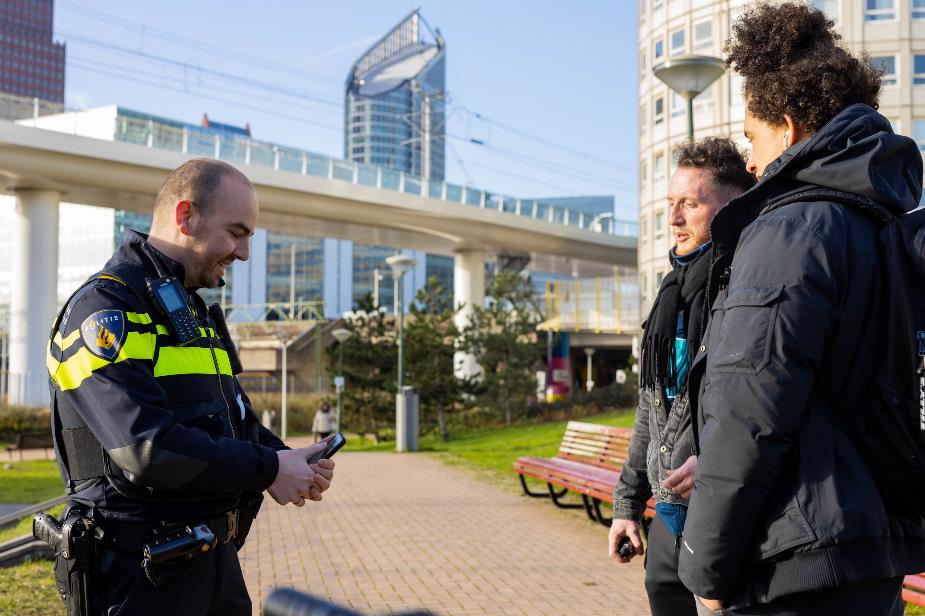Neighbourhood agents on social media: dilemmas and challenges on the digital street
9 March 2022
Neighbourhood agents are increasingly using Instagram, Twitter and Facebook to connect with the neighbourhood. Some have thousands of followers and have become the calling card of the police. How do they handle this?

Neighbourhood agents are increasingly using Instagram, Twitter and Facebook to connect with the neighbourhood. Some have thousands of followers and have become the calling card of the police. How do they handle this? That is the topic of the digital publication "Neighbourhood agents on Social Media". In his publication, lecturer-researcher Theo Zijderveld of the Public Governance research group shares scientific insights and real-life stories.
With the help of social media, neighbourhood agents work to improve relationships and hear more quickly what is going on. Streets and neighbourhoods have also become highly digitised in recent years. The use of social media offers many new challenges and dilemmas. Neighbourhood agents have to navigate the needs of the neighbourhood and the rules and protocols of the police organisation, within a highly polarised media landscape. On social media, neighbourhood agents are scrutinised by journalists, politicians and critical citizens.
Balancing act
The study shows that interaction on social media is a balancing act: neighbourhood agents must find a balance between business and informal, work and private life, openness and privacy. Mutual coordination between neighbourhood agents about the content of the messages seems much more effective than top-down control. Finally, the use of social media also has its risks: messages can take on a life of their own, police officers may be confronted with abuse and insults, or could even be threatened via social media. Therefore, it is necessary for the police organisation to develop practical wisdom to deal with this and support neighbourhood agents in a proper way.
Nevertheless, the use of social media is extremely important. One of the neighbourhood agents shared: "The youth are increasingly looking for role models in the world of social media. In the open world. So you definitely have to get in there when you can. Because if you don't, you just lose them."
Want to read more?
Download the publication ‘Neighbourhood agents on social media’ (pdf)